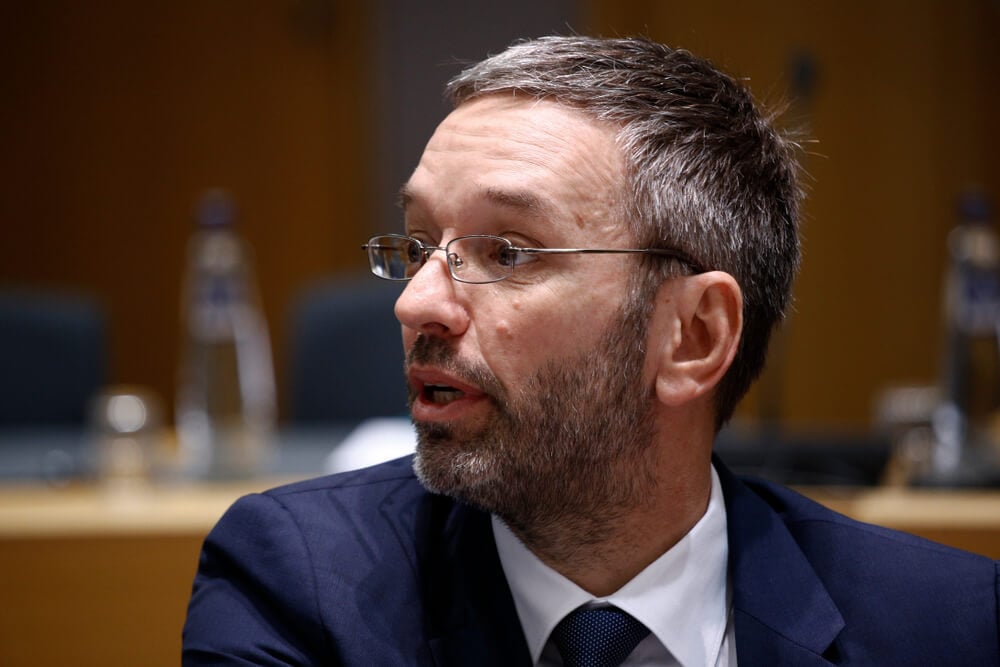The outgoing Austrian government has taken a significant political and economic step by effectively cancelling its gas supply contract with Russian state giant Gazprom this week.
Conservative Prime Minister Karl Nehammer's cabinet, which is negotiating a new mandate with its partners, is accelerating Austria's exit from its troubled energy embrace with Russia.
It was also an unusually tangible gesture of confirmation that the main political parties do not want to cooperate with the far-right and pro-Russian Freedom Party (FPÖ), despite the fact that it received the most votes in the elections on 29 September.
Austria has traditionally been almost entirely dependent on gas supplies from Russia; as much as 98% of its needs come via gas pipelines from Russia, via Ukraine.
Often criticised for its reluctance to join its European partners in cancelling Russian supplies, the Vienna government remained committed to the arrangement with Russia due to the lack of alternatives.
"No one will freeze"
However, the cutting of "umbilical cord" that dates back to the end of the 1960s began when OMV, the main Austrian energy provider, decided not to pay Gazprom until it settled compensation of around EUR 230 million.
The arbitration before the International Chamber of Commerce ruled in favour of the Austrians. As a result, Gazprom is suspending deliveries to Austria starting this weekend.
"No one will freeze," PM Nehammer told his citizens. "The supply is secure. Our gas storage facilities are full, and we have sufficient capacity to obtain gas from other regions."
Austria is lagging behind its EU partners in reducing its dependence on Russian gas
Austria is lagging behind its EU partners in reducing its dependence on Russian gas, and the energy supply and rising prices have been major political issues in the country since the start of Russia's aggression against Ukraine.
Many saw the Vienna government's reluctance to join the rest of Europe and stop buying Russian gas as a sign of insufficient Austrian solidarity with the common European support for Kyiv.
Moscow's blackmail
However, the break with Gazprom removes these doubts, and Prime Minister Nehammer explicitly states that he will not bow to Moscow's "blackmail."
"We will not be blackmailed and will not be brought to our knees," he said on Friday, stressing that Austria will not alter its support policy for Ukraine due to the latest gas supply developments.
The fact that the contract with Russia's Gazprom expires at the beginning of next year with no signs of an extension has helped Austria make this decision.
In addition, the expected interruption of supplies through the territory of Ukraine, whose government has announced that it will not renew the transit contract with Gazprom, which expires on 1 January 2025, supports Austria's decision to part ways with the Russian supplier.
Austria withdrew from the Russian deal before the anticipated transit through Ukraine compelled it to do so
Kyiv welcomed Austria's decision as a rejection of the Russian strategy of "once again using energy as a weapon," as Ukrainian Foreign Minister Andrii Sybiha stated.
Austria withdrew from the Russian deal before the anticipated transit through Ukraine compelled it to do so. This is an important branch of gas supply for Hungary and Slovakia, which together with Austria obtain 65% of their requirements via the Ukrainian gas pipeline.
Overall, this represents a major blow to Gazprom and the Russian state budget, which amounts to around $6.5 billion per year.
The desire to compromise
With the gas divorce from Russia, Karl Nehammer's government will undoubtedly gain considerable support from its EU partners and important points on the domestic political stage.
Austrian President Alexander von der Bellen assigned the prime minister the task of forming a new government, despite Nehammer's centre-right Austrian People's Party (ÖVP) coming second in the September elections behind the far-right FPÖ.
 Herbert Kickl's far-right party blamed its country's government for the termination of the gas agreement and justified Moscow
Herbert Kickl's far-right party blamed its country's government for the termination of the gas agreement and justified Moscow
He is currently in negotiations with the third-placed Social Democrats and, more recently, with the liberal NEOS party.
Although they are ideologically very different, these three parties are primarily driven by the desire to compromise in order to prevent the far right from forming a government.
The cancellation of gas imports from Russia is an important part of these efforts, as confirmation of the common desire to thwart the coming to power not only of the extremists but also strongly pro-Russian Herbert Kickl's FPÖ.
This party blamed its country's government for the termination of the gas agreement and justified Moscow. "Russia no longer perceives Austria as neutral and is taking appropriate action," said FPÖ Secretary General Christian Hafenecker.
The Austrian government's move will accelerate the implementation of the non-binding European decision to completely stop gas imports from Russia by 2027.
Austria has been one of the biggest obstacles to achieving that goal, and Hungary and Slovakia will join it when transit through Ukraine stops on 1 January, despite their governments' displeasure.